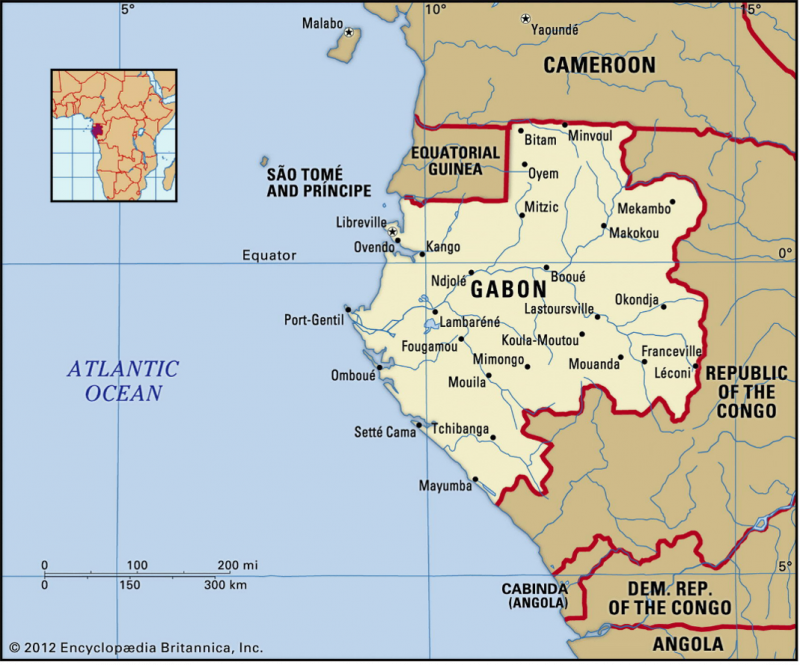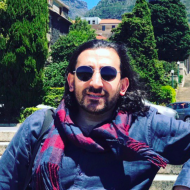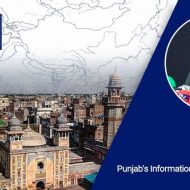The history of colonial politics in Gabon is a multifaceted narrative that reflects the intricate interactions between European powers, local cultures, and the quest for power and resources. Situated on the west coast of Central Africa, Gabon’s colonial past has left an indelible mark on its political, social, and economic landscape. The relationship between France and Gabon is a layered tapestry woven with historical, political, and economic threads. From the colonial era to the present day, the interaction between these two nations has evolved, reflecting both cooperation and challenges. This article delves into the multifaceted nature of French-Gabonese relations, exploring their historical roots, political dynamics, and contemporary significance.[i]

Early European influence
Gabon’s colonial history began with the arrival of Portuguese explorers in the 15th century. Subsequent European powers, including the French, Dutch, and British, established trading posts along the coast, eventually leading to the establishment of formal colonial rule. France emerged as the dominant colonial power, controlling Gabon from the late 19th century until its independence in 1960. Under French colonial rule, Gabon became part of French Equatorial Africa, a federation of French territories in Central Africa. Colonial administration was marked by a hierarchical structure, with French officials holding top positions and exerting control over local affairs. Economic exploitation centered around the extraction of valuable resources, including timber and rubber. The exploitation of labor from local communities further fuelled tensions.[ii]
Colonization led to the imposition of European values, customs, and languages on Gabonese society. Indigenous cultures and traditions faced suppression, as French policies aimed to assimilate the local population into European norms. This cultural upheaval sparked resentment and resistance among Gabonese people. The latter half of the 20th century witnessed a growing political consciousness among Gabonese individuals. As the struggle for independence spread across Africa, Gabon too began to demand self-determination. Activist figures like Léon M’ba and Omar Bongo Ondimba emerged as prominent voices advocating for autonomy.[iii] Gabon achieved independence from France on August 17, 1960. Léon M’ba became the nation’s first president, ushering in a period of relative stability. However, the political landscape remained complex, with lingering influences from colonial legacies shaping power dynamics. The colonial era left an enduring impact on Gabon’s political, social, and economic fabric. The legacy of hierarchical governance, economic inequality, and cultural disruption persisted beyond independence. The formation of a one-party state under President Omar Bongo Ondimba raised questions about the extent of political freedom and representation.[iv]
The Bongo Family legacy in Gabon
The Bongo family’s presence in Gabon’s political landscape has spanned decades, leaving an indelible mark on the country’s history and governance. From Omar Bongo Ondimba’s lengthy presidency to his son Ali Bongo Ondimba’s ascension, the Bongo family’s influence has been a recurring theme in Gabonese politics. Omar Bongo Ondimba, the longest-serving African head of state at the time of his death in 2009, rose to power in 1967 after the death of Gabon’s first president, Léon M’ba. Bongo’s presidency was marked by a pragmatic approach to politics, allowing Gabon to maintain relative stability amid regional turmoil. His leadership style was characterized by a balance between maintaining ties with former colonial power France and pursuing a non-aligned foreign policy.[v]
The Bongo family’s influence extended beyond Omar Bongo’s presidency. In 2009, Ali Bongo Ondimba succeeded his father after a disputed election. This succession raised questions about the preservation of democratic processes and the potential for dynastic rule. Ali Bongo’s presidency aimed at modernizing Gabon’s economy and diversifying its revenue sources, but his tenure was marred by allegations of electoral fraud and economic challenges. The Bongo family’s rule had a profound impact on Gabon’s governance and economy. While their leadership brought relative stability and development to the country, critics pointed to issues of corruption, lack of political freedom, and unequal distribution of wealth. The family’s influence permeated various sectors, from politics to business, often giving rise to allegations of nepotism and favouritism.[vi]
The Bongo family’s legacy has not been without its share of controversies. Accusations of corruption and human rights abuses have shadowed their rule, leading to both domestic and international criticism. The question of political succession and the perceived concentration of power within the family have been sources of contention. As Gabon continues to navigate its way through changing dynamics and global challenges, the Bongo family’s legacy remains intertwined with the nation’s trajectory. The current and future leaders of Gabon must strike a delicate balance between honouring the family’s contributions and addressing the concerns that have arisen during their rule.[vii]
Navigating the Franco-Gabonese relationship: A complex historical and political alliance
Gabon’s colonial history is deeply intertwined with French influence. As a former French colony, Gabon was subjected to French colonial administration for nearly a century. This period left an indelible mark on Gabon’s culture, politics, and economy. French explorers, traders, and administrators played a significant role in shaping the country’s development, albeit with the associated challenges of colonization. Gabon gained independence from France in 1960, marking the beginning of a new phase in their relationship. The post-colonial era saw the rise of Gabonese leaders such as Léon M’ba and his successor, Omar Bongo Ondimba. France continued to maintain close ties with Gabon, particularly in areas of defence, economic cooperation, and cultural exchange.[viii]

The political cooperation between France and Gabon has been characterized by a complex interplay of interests. France’s support for Gabon has often been influenced by economic considerations, given Gabon’s significant oil resources.[ix] This has led to varying degrees of criticism, with some accusing France of maintaining neocolonial relationships for its economic benefit.[x]
Cultural exchanges and diplomacy
French-Gabonese relations also extend to cultural and diplomatic dimensions. France has played a role in promoting Gabonese culture and art on the international stage. Diplomatic visits, educational exchanges, and cooperation in various international organizations have further cemented their ties. The relationship between France and Gabon has not been without challenges. Criticisms of corruption, political oppression, and lack of transparency within Gabon’s leadership have strained the partnership at times. France’s historical role as a former colonial power has also led to debates about the nature of their current engagement.[xi]
In recent years, the Franco-Gabonese relationship has continued to evolve. As Gabon faces modern challenges such as economic diversification, environmental sustainability, and good governance, France’s role as a partner remains crucial. Balancing economic interests, historical ties, and ethical considerations presents an ongoing test for both nations.[xii]
Conclusion
The relationship between France and Gabon is a complex interplay of history, politics, economics, and diplomacy. While rooted in a colonial past, these ties have evolved over the decades, adapting to changing global dynamics. The story of Franco-Gabonese relations serves as a reminder of the intricate nature of international relationships, where historical legacies and contemporary realities intersect to shape the future. The Bongo family’s legacy in Gabon is a complex story of power, influence, and governance. Their rule has shaped Gabon’s modern history, leaving a lasting impact on both positive and controversial fronts. As Gabonese society evolves and global dynamics shift, the Bongo family’s role in the nation’s development continues to be a subject of debate, discussion, and reflection. However, this was also one of the negative effects of the French colonialism in the country.
The colonial politics that shaped Gabon’s past continue to reverberate in its present. The nation’s journey from colonization to independence highlights the complexities of power, culture, and identity that characterize many post-colonial societies. Acknowledging this history and its effects is crucial for a comprehensive understanding of Gabon’s political landscape today.
Notes
[i] Jean-Baptiste R. (2023). Multiracial identities in colonial French Africa: race childhood and citizenship. Cambridge University Press.
[ii] Tonda J. & Turner C. (2021). The modern sovereign: the body of power in central Africa (Congo and Gabon). Seagull Books.
[iii] Bernault F. (2019). Colonial transactions: imaginaries bodies and histories in Gabon. Duke University Press.
[iv] Jean-Baptiste R. (2014). Conjugal rights: marriage sexuality and urban life in colonial Libreville Gabon. Ohio University Press.
[v] Rich J. (2007). A workman is worthy of his meat: food and colonialism in the Gabon estuary. University of Nebraska Press.
[vi] Barnes J. F. (1992). Gabon: beyond the colonial legacy. Westview Press.
[vii] Workshop on the Small Pelagic Resources of Angola Congo and Gabon, Cochrane K. L. Tandstad M. & Food and Agriculture Organization of the United Nations Sub-Regional Office for Southern and East Africa. (2000). Report of the workshop on the small pelagic resources of Angola Congo and Gabon luanda Angola 3-7 November 1997. Sub-Regional Office for Southern and East Africa Food and Agriculture Organization of the United Nations.
[viii] Charles-Dominique P. & Martin R. D. (1972). Behaviour and ecology of nocturnal prosimians: field studies in gabon and madagascar = comportement et ecologie de prosimiens nocturnes : etudes de terrain au gabon et à madagascar. P. Parey.
[ix] Auzanneau M. Reynolds J. F. & Heinberg R. (2018). Oil power and war: a dark history. Chelsea Green Publishing.
[x] Charles-Dominique P. & Martin R. D. (1972). Behaviour and ecology of nocturnal prosimians: field studies in gabon and madagascar = comportement et ecologie de prosimiens nocturnes : etudes de terrain au gabon et à madagascar. P. Parey.
[xi] Sicking L. (2008). Colonial borderlands: france and the Netherlands in the Atlantic in the 19th century. Martinus Nijhoff.
[xii] McKenna A. (2011). The history of central and eastern Africa (1st ed.). Britannica Educational Pub. In association with Rosen Educational Services.









Leave a Reply